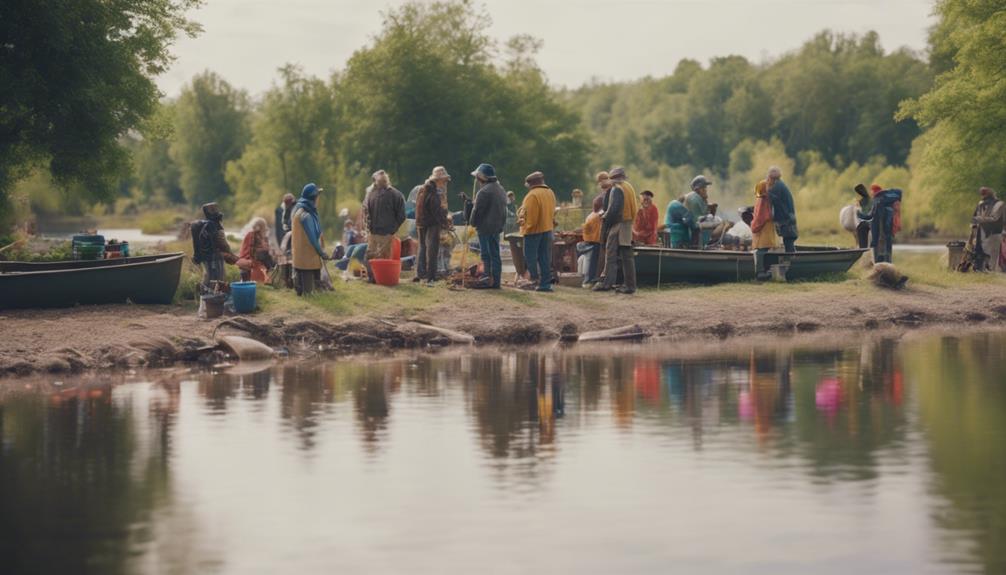Fishing is not just a hobby; for many, it’s a way of life. Understanding when the fishing season starts can dramatically enhance your fishing experience. Whether you’re a seasoned angler or a novice, being aware of the fishing seasons in your area can help you catch the best fish at the right time. In this guide, we will explore various aspects of fishing seasons, including regional variations, legal regulations, and tips for maximizing your fishing trips.
Understanding Fishing Seasons: A Brief Overview
When the fishing season starts varies significantly depending on geographical location, fish species, and local regulations. In general, fishing seasons are established to protect fish populations during crucial breeding periods, ensuring sustainable fishing practices. The fishing season typically opens in the spring and runs through the fall in many areas, but some regions have year-round fishing opportunities. Knowing when the fishing season starts in your area will help you plan your trips effectively and avoid any legal issues.
Regional Variations: When Does Fishing Season Start Near You?
Different regions experience varied weather patterns and ecosystems, affecting when the fishing season starts. For instance, in northern states, fishing often begins in late April or early May, coinciding with the melting ice in lakes and rivers. Conversely, southern states may see their fishing season start as early as March. Coastal areas often have different rules, especially concerning saltwater fishing. Always check your local wildlife agency for specific dates and regulations, as they can vary even within the same state.
Popular Fish Species and Their Seasons
When the fishing season starts also depends on the fish species you’re targeting. For example, trout fishing typically kicks off in March or April, while bass fishing usually peaks during the late spring and early summer months. Species like walleye and pike have their own specific seasons, often starting in late April or May. Understanding the spawning cycles of these fish can help you choose the best times to fish for them, increasing your chances of a successful catch.
Legal Regulations: Licensing and Limits for Anglers
Before heading out when the fishing season starts, it’s crucial to familiarize yourself with local fishing regulations. Many regions require anglers to have a fishing license, and there are often specific rules regarding catch limits and size restrictions. These regulations are in place to promote sustainable fishing practices and protect fish populations. Failure to adhere to these guidelines can result in fines or other legal consequences, so always check your local fishing laws prior to your trip.
Best Practices for Preparing for Fishing Season
As the fishing season approaches, preparation is key. Start by gathering your fishing gear, ensuring that your rods, reels, and tackle are in good condition. It’s also wise to stock up on bait and lures that are popular for the species you intend to catch. Additionally, familiarize yourself with the best fishing spots in your area. Online forums, local bait shops, and fishing apps can provide valuable information about where to go and what to expect as the season begins.
Essential Tips for Successful Fishing Trips
When the fishing season starts, it’s vital to have a strategy in place for your fishing trips. Start by selecting the right time of day; early morning and late afternoon are often the most productive times for fishing. Additionally, pay attention to weather conditions, as fish tend to be more active during overcast days or just before a storm. Lastly, consider using live bait, as it often proves more effective than artificial lures. These practices can significantly increase your chances of a fruitful fishing experience.
Community and Conservation: The Importance of Sustainable Fishing
As anglers, it’s our responsibility to practice sustainable fishing. When the fishing season starts, remember to follow the “catch and release” philosophy, especially for species that are endangered or have strict catch limits. Participating in local conservation efforts can also make a significant difference in maintaining healthy fish populations. Join local fishing clubs or organizations that focus on conservation initiatives. This not only helps the environment but also enriches your fishing experience by connecting you with other passionate anglers.
Conclusion: Embrace the Fishing Season
Understanding when the fishing season starts is essential for any angler looking to maximize their fishing success. By familiarizing yourself with local regulations, preparing adequately, and practicing sustainable fishing, you can enjoy a rewarding fishing experience. Remember that fishing is not just about the catch but also about enjoying nature and spending time with friends and family. So, as the fishing season approaches, gear up, stay informed, and make the most of your time on the water!
In summary, knowing when the fishing season starts is crucial for planning your fishing adventures. By keeping in mind regional variations, specific species seasons, legal regulations, best practices for preparation, and sustainable fishing methods, you can enhance your fishing experience. Happy fishing!
